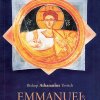The best hotels, restaurants, cafes, shops and cultural spots in the city.
Visitors to Belgrade often hesitate to tell friends about the city's charms. In the calm of the last decade, the capital of Serbia has experienced a cultural explosion and today it feels distinctly like Europe's best-kept secret.





